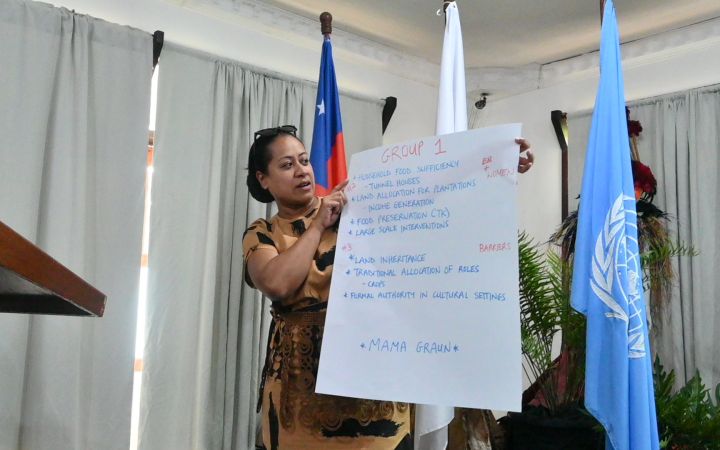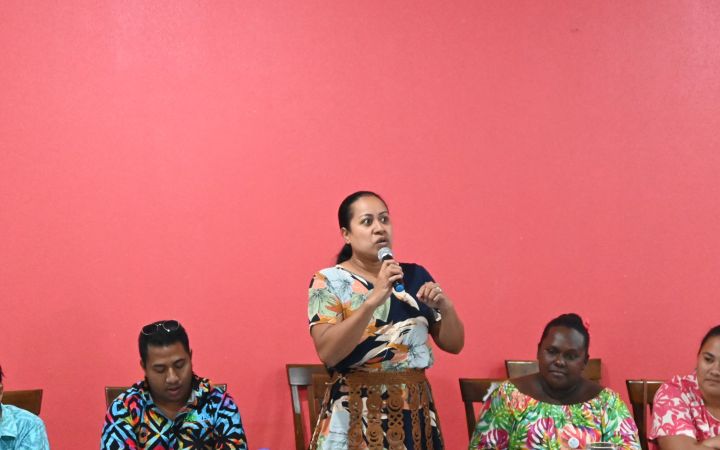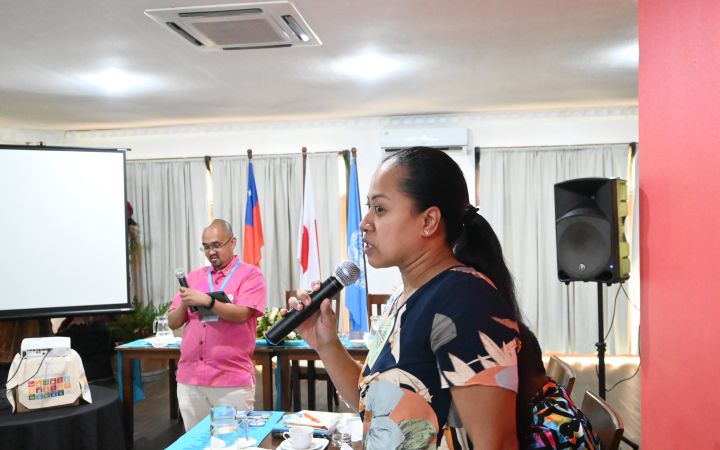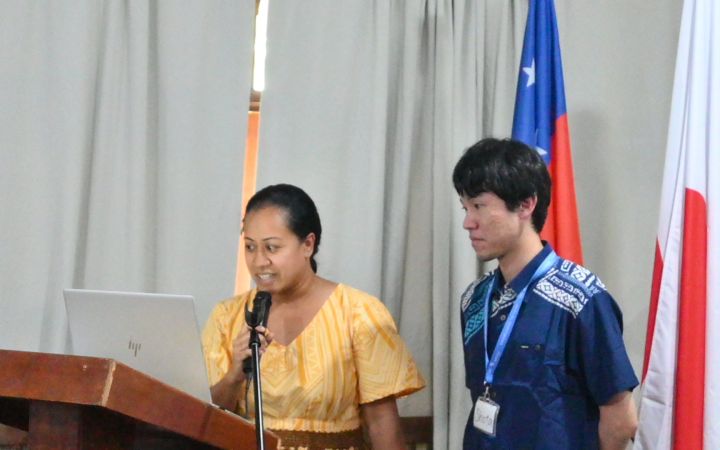- Talita Tuipolutu is communications specialist in Tonga. She believes that community involvement is essential for disaster risk reduction and management.
- Talita took part in the 2022 UNITAR Hiroshima Women’s Leadership in Tsunami-based Disaster Risk Reduction Training Programme.
- Disaster risk reduction and management are important for Tonga, a country vulnerable to cyclones, earthquakes and tsunamis.
18 August 2023, Hiroshima, Japan – Talita Tuipolutu, a communications coordinator for the Tonga Australia Support Platform, developed a stronger passion for disaster risk reduction after experiencing the devastation caused by cyclones, earthquake and tsunami in Tonga. She joined the 2022 UNITAR Hiroshima Women’s Leadership in Tsunami-based Disaster Risk Reduction Training Programme so she could help her community better prepare for future disasters.
Lessons from Disasters
Tonga is a small Pacific Island country that is vulnerable to cyclones, earthquakes and tsunamis. On 12 February 2018, the country was devastated by Cyclone Gita, the strongest storm to hit Tonga in modern record. The cyclone destroyed hundreds of homes and displaced over 4,500 people. On 15 January 2022, the country was devastated by the explosive eruption from the underwater volcano Hunga Tonga Hunga Ha-apai, which brought tsunami waves and ashfall around the world. Talita remembers the gaps in readiness, reaction and recovery, particularly in remote, inaccessible locations. As she directed relief efforts, she reaffirmed her belief in community participation and teamwork in disaster response.
When Talita learned about the UNITAR Hiroshima disaster risk reduction programme via a co-worker, she applied in hopes that the programme would let her help her community better prepare for disasters and minimize the impact of disasters on people and environment.
Regional UNITAR Disaster Risk Reduction Training in Samoa
The UNITAR DRR programme trains professionals – especially women from Pacific small island developing states – on gendered leadership and inclusive disaster risk reduction. While originally run as an in-person training in Japan, the programme went online for 2020 and 2021 due to the pandemic.
In the 2022 round, the programme started online but then brought back in-person training for the top performers – this time, as a workshop in Samoa. It was the first time the in-person training was held in the Pacific. The modification was made to respond to past participant feedback that asked for a greater focus on Pacific experiences. The Samoa workshop brought the top learners from 2020, 2021 and 2022 online trainings together to further develop their management and leadership skills and learn from site visits, organizations and experts in Samoa.
A “transformative” experience
Talita describes her UNITAR experience as “transformative”. The participants used a hypothetical situation in Samoa to develop disaster risk management plans, which included a communication strategy, an evacuation plan and a resource allocation plan. Such plans, Talita believes, will help Pacific island countries reduce risk and handle disasters.
Tonga is already working on awareness campaigns and training, developing evacuation plans, and constructing early warning systems. Across all, Talita believes the key is to ensure that communities are fully informed and engaged.
I’ve always been passionate about making sure that messages are being translated down from the top level to the communities. –Talita Tuipolutu, UNITAR alumna, Tonga
She vows to remain a lifelong learner so she can continue to transfer knowledge and skills to her community.
To fellow professionals and communities: Keep going
Talita especially enjoyed sharing her experiences and learning from other participants and resource people in the programme. She calls on her peers to keep doing their work to support community resilience. And for the communities: Talita encourages them to proactively identify and mitigate vulnerabilities and threats.
“Please continue doing this amazing work. Please engage people from all countries, all communities.” –Talita Tuipolutu, UNITAR alumna, Tonga
UNITAR Hiroshima Office 20th anniversary
On UNITAR Hiroshima Office’s 20th anniversary, Talita thanked UNITAR for giving her the opportunity to grow. Looking to the next 20 years, she hopes that UNITAR continues to be at the forefront of capacity-building and knowledge exchange for disaster risk reduction and management.
When you train a woman, you train a family, a community and a nation. –Talita Tuipolutu, UNITAR alumna, Tonga
About UNITAR
The United Nations Institute for Training and Research (UNITAR) is a dedicated training arm of the United Nations. In 2021, UNITAR trained 370,139 learners around the world to support their actions for a better future. In addition to our headquarters in Geneva, we have offices in Hiroshima, New York and Bonn and networks around the world.
The Division for Prosperity is based in the Hiroshima Office and Geneva. We seek to shape an inclusive, sustainable and prosperous world through world-class learning and knowledge-sharing services on entrepreneurship, leadership, finance and trade, digital technologies, and nuclear disarmament and non-proliferation. We empower individuals from least-developed countries, countries emerging from conflict, and small-island developing states – especially women and young people – to bring about positive change.





